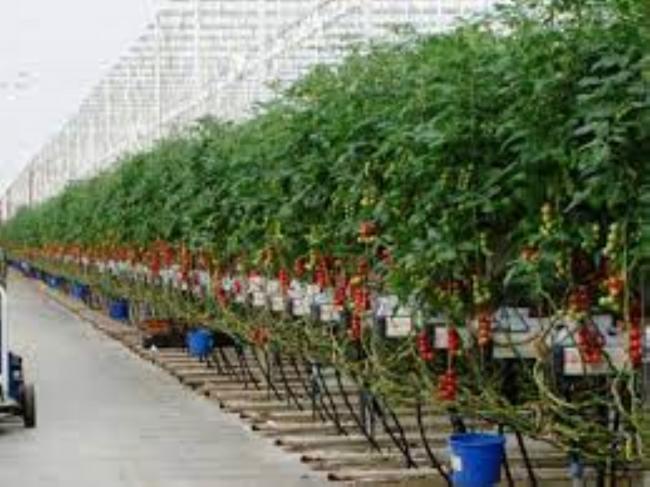Reduction of the environmental impact of the soilless cultivation of cut flower species in the Riviera di Ponente.

The main objective of the project is to develop and test a smartphone APP, jointed with a lysimeter, able to control automatically the main parameters of soilless cultivation, in order to give to the grower, the necessary information about when and how irrigate and fertilize the soilless culture. The grower will be advised for any anomalies detected in the system by the APP, and it will help him to solve them. The final goal is to reduce the environmental impact and increase the profitability of these cultivations. Other objectives are to introduce and test some innovations such as the use of biochar and chitosan for the control of soil-borne diseases in order to reduce the use of pesticides.
The project will consist of the following activities: 1) Project coordination and financial reporting; 2) design and test of a DSS with relative APP and lysimeter; 3) testing of DSS in the environment of the Riviera Ligure di Ponente on ranunculus soilless culture; 4) test of the use of biochar as an adjuvant for the soil-borne diseases into the ranunculus soilless culture; 5) test of the use of chitosan for the control soil-borne diseases into the ranunculus soilless culture; 6) testing of the use of biochar and chitosan as a means to control the soil-borne diseases into the ranunculus soilless culture; 7) dissemination of results.
The territorial animation activity carried out in the first step of the project, showed that over 80% of cut flower growers of roses, ranunculus, anemones and potted plants use the soilless culture, with a very approximate and empirical water and nutrient management: as consequence, this produces important amount of drainage with the leachate of water and nutrients. In some cases, the lack of knowledge in the irrigation management results in a reduction of crop growth due to water deficiencies / excesses and/or salinity build-up in the substrate with the increase of the incidence of soil-borne diseases: all together lead to a reduction in the profitability of these crops and a strong environmental impact. FUORISUOLOSMART project wants to develop and test a smartphone APP able to give advices on how to manage irrigation and fertilization of soilless crops, automatically controlling the main cultivation parameters (i.e. pH and electrical conductivity of the drainage), warning the farmer of any anomaly found and how to solve it. The project is completed with some actions to test the addition to the substrate of biochar and chitosan in order to make the root environment healthier and re-use the substrate for more growing cycles.
Development and testing of DSS (App for smartphones) with an automatic lysimeter for water and mineral crop management of ranunculus soilless culture.
The DSS FUORISUOLOSMART could be the solution for solving the strong lack of grower’s knowledge on the water and mineral management of soilless cultures of cut flower crops typical of the Riviera Ligure di Ponente. The system will be developed for ranunculus and will can use independently from the type of soilless cultivation system and/or irrigation system adopted in the farm. The prototype consists of a lysimeter capable of sampling a representative number of plants, equipped with sensors for the measurement of pH, electrical conductivity, and the volume of irrigation and drainage, as well as the environmental parameters such as light, temperature and humidity of the air and substrate. The lysimeter will be self-powered with a battery recharged by a solar panel and it will be equipped with a SIM in order to be able to transmit the recorded data to a database situated on a DiSAAA-a’s server. The data will be read by a smartphone APP that will allow to the grower to check on real time on his smartphone the parameters of soilless cultivation and the greenhouse climate, reporting any anomalies and remedies to solve them. The system will be equipped with an innovative software (machine learning), capable to making forecasts for the water and mineral consumption of the following 24 hours, based on the recorded historical data. The application will be completed by some static pages that will provide information to the farmer how to manage the main soil-borne diseases of ranunculus.
Effect of biochar added to the substrate as a control for fungal diseases and root-knot nematodes.
Biochar derives from the process of product pyrolysis and residues of vegetable origin from agriculture and forestry and its use was admitted in Italy a few years ago (Legislative Decree 75/2015 and s.m.i.).
Biochar improves the properties and the fertility of the soil, promoting the presence of beneficial micro-organisms for plants and positively influencing the dynamics of nutrients, reducing the use of synthetic fertilizers, has suppressive effects on many plant pathogens such as Fusarium spp, Pythium aphanidermatum, Phytophthora spp, and Rhizoctonia solani.
It is hypothesized that biochar can act through four mechanisms: 1) inducing systemic resistance (ISR), in cultivated plants, with the activation of some genes that allow the synthesis of compounds harmful to pathogens; 2) stimulating the increase and / or activity of beneficial micro-organisms for plants and harmful fungi antagonists; 3) modifying the quality of the soil and the substrate in terms of availability of nutrients and environmental conditions in general; 4) adsorbing allelopathic and phytotoxic compounds but also useful substances for plants and releasing them in the short to medium term (carrier effect).
Innovation must be adapted and tested for its addition to growing media for the cultivation of out-of-soil buttercups, typical of the climate of the Riviera Ligure di Ponente environments and can help to reduce the use of chemical fungicides and extend the use of the substrates for more than one cycle.
Effect of chitosan added to the substrate as a control of fungal diseases.
Chitosan is a high molecular weight polysaccharide obtained from the exoskeleton of shellfish from the food processing industry. It is a substance of natural origin which does not leave toxic residues on the treated product, and for this reason its use is permitted in the organic farming.
Chitosan performs its defence activity with three different mechanisms: it forms a protective film that reduces transpiration (20-30%), stimulates the plant's post-infective defence mechanisms (30-40%) and has fungicidal properties (35-45%). The application of chitosan to plants stimulates an endogenous defensive reaction, through a thickening of tissues and cell walls to block the penetration of the pathogen and its diffusion, and a biochemical protection through the production of compounds with antifungal and antibacterial action such as phytoalexins and enzymes hydrolytic.
Numerous studies have shown that chitosan is able to effectively reduce the development of numerous pathogenic fungi, including telluric pathogens, such as Fusarium spp. Pythium aphanidermatum, Macrophomina phaseolina, Sclerotium rolfsii and R. solani. Chitosan can be used both as a soil improver and as a tanning agent for seeds or bulbs.
This innovation will be adapted and tested in the ranunculus soilless production of the Riviera Ligure di Ponente. Its could reduce the use of fungicides, contributing to improve the environment, the health of the greenhouse operators and being able to reuse the substrate for more cycles.
Documentazione del workshop Innovazione e conoscenza per l’agricoltura: le sfide del futuro per la cooperazione in Liguria
I Gruppi Operativi, Liguria, PEI-AGRI, Italia| Titolo/Descrizione | Url | Tipologia |
|---|---|---|
|
Sito web del progetto
|
Sito web
|
|
|
Sito web del Capofila
|
Link ad altri siti che ospitano informazioni del progetto
|
|
|
Sito web del parter
|
Link ad altri siti che ospitano informazioni del progetto
|
